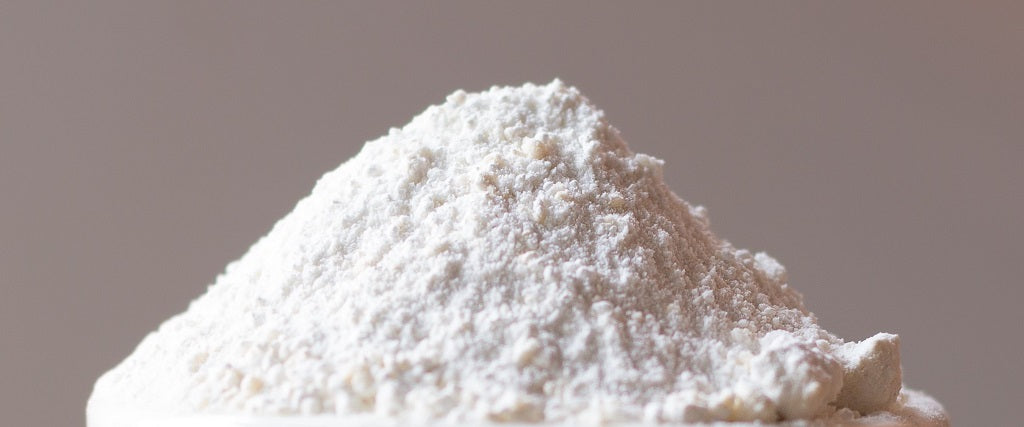What Are Sulphates (Sulfates)?
Sulfates (or sulfate compounds) are salts of sulfuric acid, aggressive detergents or surfactants, commonly found in hair shampoos, body and skin products, toothpaste, shaving foams etc. In facial washes, sulfates are added as surfactants to act against dirt and grease because the chemical can dissolve in oil and water. The most common form of sulfites added as ingredients to personal care and beauty products are - Sodium Lauryl Sulfate (SLS) and Sodium Laureth Ether Sulfate (SLES). These chemicals are the byproducts of petroleum, coconut and palm oil.
Why You Should Avoid Them?
There are several health, environmental and humanitarian related reasons to avoid products and byproducts of sulfates. The compounds SLS and SLES which are commonly found in cleansing and personal products cause skin irritation, rashes, inflammation, peeling, allergies and drying out of the skin. There are few studies to prove that carcinogens, however, it is still better to avoid using them in any form whether on skin or hair. Most byproducts of sulfates are derivatives of petroleum and palm oil which are dangerous for the environment. Sulfates are associated with a contribution to pollution, climate change, global warming and animal extinction. Most of the brands available in the market test their products on animals in order to measure the dangers caused to the skin and insides of the human body. This is unethical and inhumane.
Are Sulfates Dangerous?
While sulfates do cause skin irritation, eye problems, falling of hair and are contributing to the degradation of the environment, these chemicals do not pose any deadly threat to human bodies. No research or study backs up any health or carcinogen risks associated with usage of sulfates. The process of manufacturing Sodium Laureth Ether Sulfate (SLES) is called ethoxylation. During this process, the sulfate can get contaminated with 1,4-dioxane which is carcinogenic in nature. However, sulfate products which are not contaminated by 1,4-dioxane such as Sodium Lauryl Sulfate (SLS) do not share the same carcinogenic risk. It is recommended to fully research the ingredients and the type of sulfate used in manufacturing the product before purchasing it. Besides that, sulfates should not be used by people with sensitive skins as it clogs pores, causes acne and blackhead.
Where Are The Sulfates Found?
The highest concentration (10-25%) of sulfates is found in hair shampoos, i.e, both wet and dry hair shampoos. It can also be found in toothpaste (1%), facial and skin cleanser (1%), body washes (1%) and lubricants for medicinal purposes (0.5-2%). Other products in which you can find SLS and SLES are:
- Cleaning detergents
- Foaming hand washes
- Laundry detergents
- Dish soap
- Bath bombs
- Facial creams
Are Sulfates Safe?
There is no solid evidence which proves that sulfates are unsafe to use. Sulfates do not show any carcinogenic risks, health risks or effects on reproduction and fertility. However, these chemicals pose risk to the skin, eyes and hair. Sulfates are a common cause of skin irritation and inflammation in people with sensitive skins. When exposed to the sun, it can contribute to varying levels of irritation to the skin. Sulfates are damaging on the hair - the chemicals cause hair fall, split ends, dandruff and scalp infections.
Are Sulfates Dangerous In Shampoo?

There are few pieces of evidence to back up the carcinogenic dangers associated with sulfates but there are other problems associated with using sulfates as well. Below are some issues that can occur from prolonged use of sulfate shampoos:
1. Harsh Cleansers
Sulfates are known for being harsh cleansers. The chemical compounds present in sulfate extract dirt and grime aggressively. This can affect the built structure of hair leading to thinning, protein removal, scalp infections, drying out of hair and uprooting.
2. Stip Off Colour
Sulfates can cause immense damage to coloured hair when used regularly. The chemical will strip the colour off the hair strands.
3. Drying Out Scalp
People with sensitive skins and eczema can benefit from using sulfate-free shampoos as sulfate strips away the moisture and protein from your hair causing further scalp irritation.
4. Hair Fall
Prolonged use of sulfate shampoos causes patching of hair and greying hair.
How You Can Go Sulfate-Free?
The following are some ways to go sulfate-free:
1. Go Alternative Hunting
There are several brands available in the market which sell sulfate-free products - facial cleansers, liquid soaps, hair shampoos, body washes etc. Sulfates can be too strong for people with frizzy and dry hair as it strips the hair off moisture and protein. A study has shown that Sodium Lauryl Sulfate (SLS) strips seven times more protein from hair than just plain water. Sulfates can cause scalp irritation for people with sensitive and eczema prone skins. Going sulfate-free will help overcome these issues instantly. Do a complete research on the best alternatives available in the market before going out and purchasing. Read up on the ingredients used in the product beforehand.
2. Coco betaine
You can buy products that include cocobetain instead of sulfate as a cleanser. Cocobetains, an alternative surfactant derived from coconut oil, is milder on skin and hair. It is the best-known substitute of sulfate. However, you will have to rigorously massage the product onto your hair as cocobetain shampoo does not lather as much as a sulfate shampoo. You will quickly notice the difference in a matter of day - the shampoos will not dry out your hair and scalp, the hair will feel hydrated and it will add more bounce to your hair.
Are Some Sulfates Good?
There are no good or bad sulfates. Sulfate products are deemed safe to use as long as they are used in moderation. Prolonged contact with sulfates can cause skin and eye irritation. However, it is best to find alternatives to these products and go sulfate-free.
Are There Any Non-Sulfate Substitutes Available?
Yes, there many sulfate-free alternatives present in the market. Almost every known brand has a variety of product lines marketing sulfate-free products. It is always recommended to go natural on your skin and hair - select products which solid or oil-based as liquid-based cleanser usually require a surfactant like a sulfate. However, these products will not lather well (lather is not as important as using damage-free products). As for home care products, you can make your own detergents at home using white vinegar and citric acid.
Also Read:
How Important Is Keratin For Healthy Hair?
Author Name:Mariam Shareef
Disclaimer: All the content on anveya.com/blogs is solely for information. It is not intended to be a substitute for professional medical advice, diagnosis or treatment. Always seek the advice of your physician or a qualified health care provider. The information, suggestion or remedies mentioned on this site are provided without warranty of any kind, whether express or implied.



